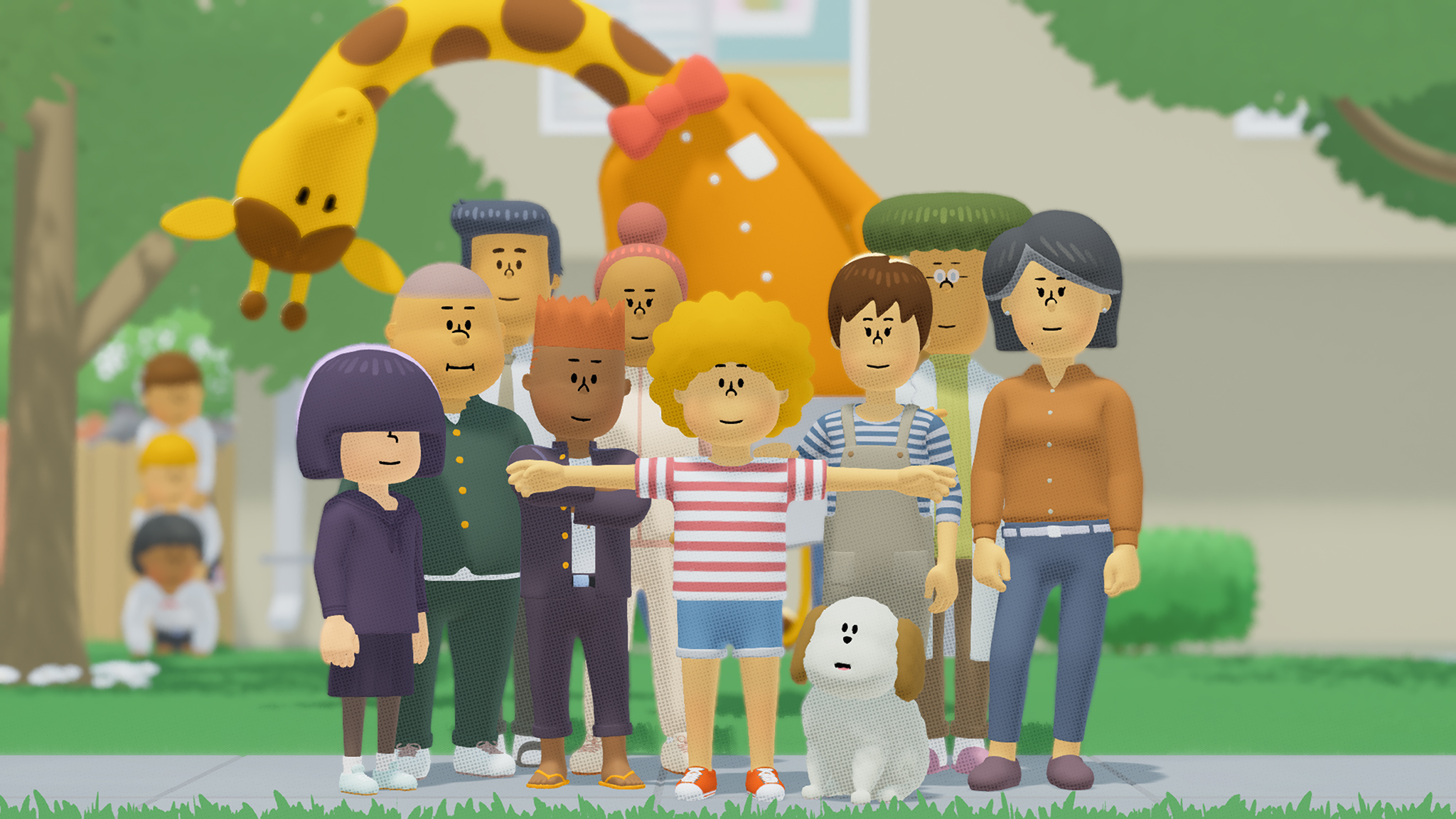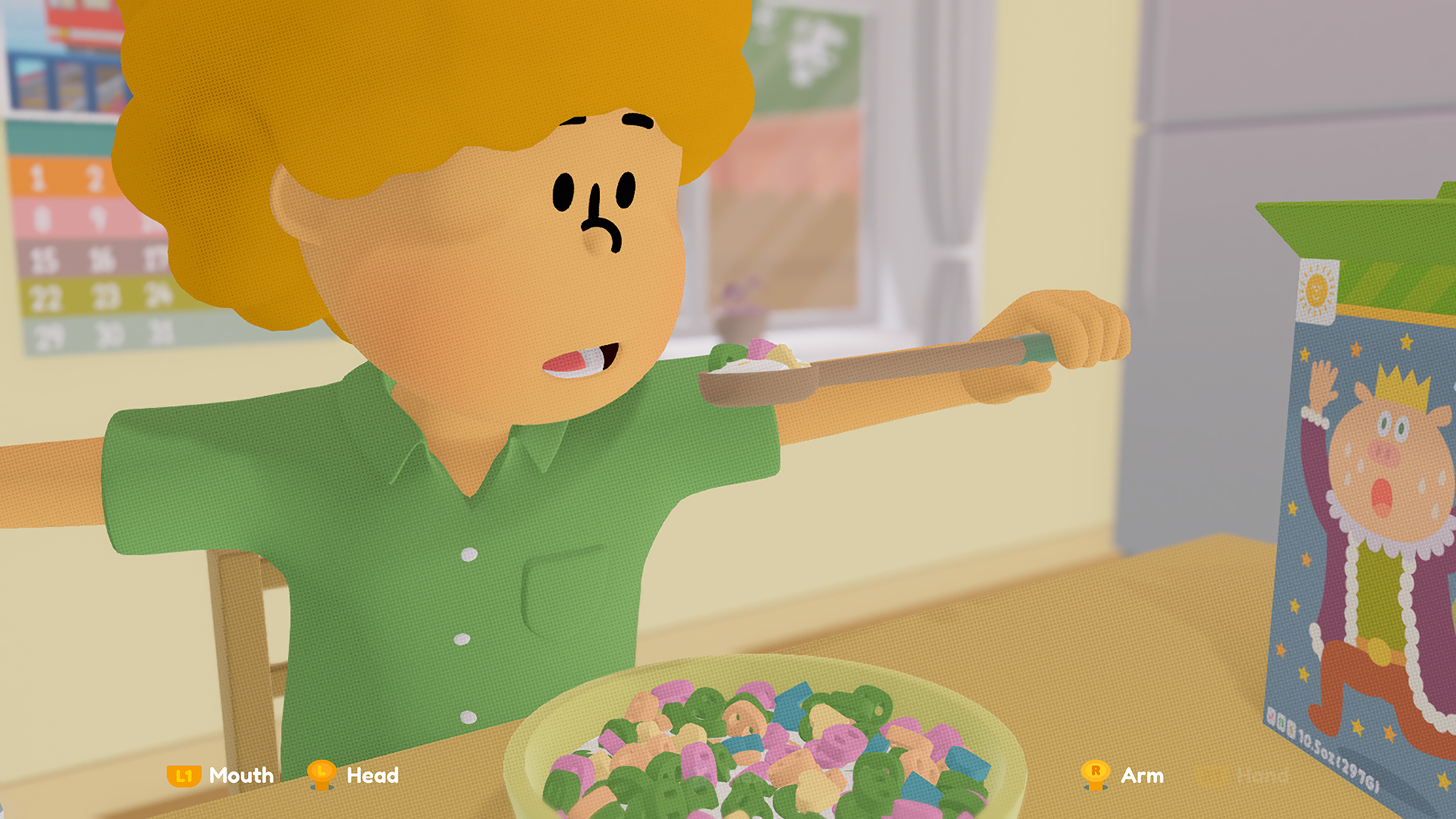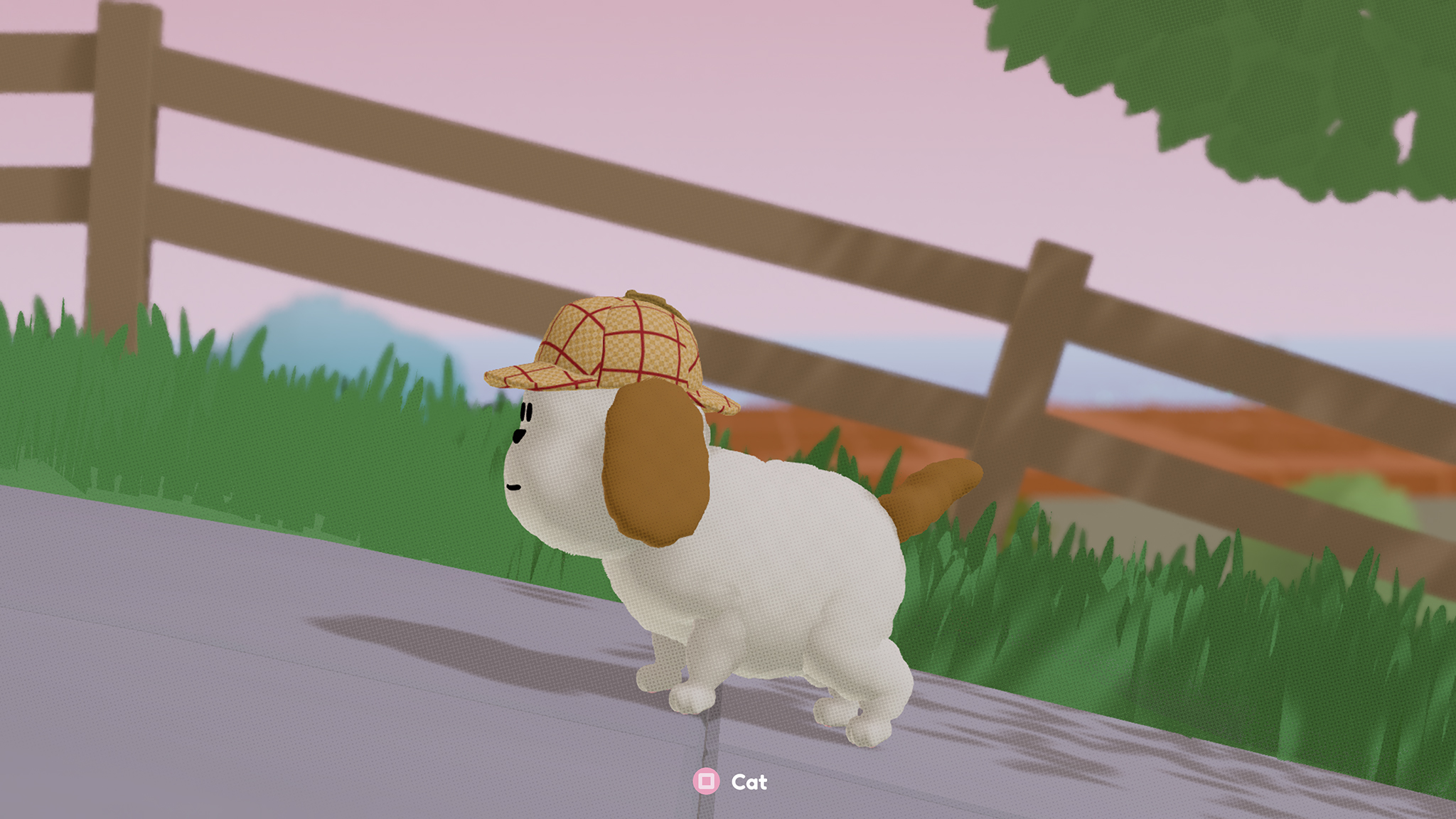
In simpler terms, the game, similar to the style of “Katamari Damacy” director Keita Takahashi, repeatedly conveys the message that you’re just right as you are, through a series of catchy tunes at the start of each chapter. This game is filled with positivity, but its optimism sometimes overshadows its noticeable flaws.
The game’s storyline inherently promotes positivity, as the primary character maintains a permanent T-pose, their arms always extended straight out like they were born without elbow joints. This peculiar trait often serves as comic relief for some players, echoing the experiences of children living with disabilities in reality.

Presenting disability with a unique perspective is commendable, but what truly stands out is how the child copes with it. Although they may be momentarily upset when faced with bullying, they never direct frustration towards their body nor seem consistently down due to having to put in extra effort compared to other children. They have help and utilize certain tools, yet these are not depicted as condescending aids. Instead, they’re simply a part of their everyday life that they handle with maturity, avoiding the stereotype of the bitter disabled person learning acceptance. It’s the people around them who need to grow up a bit, not the child themselves.
In this game, some mundane daily activities have been turned into mini-games, allowing players to simulate these experiences as well. Activities such as brushing teeth, eating breakfast, dressing up, and cleaning are now interactive, requiring players to manipulate the controllers to mimic their movements. This may seem trivial, but it subtly reflects the struggle of adapting to minor inconveniences that come with performing routine chores when one is disabled. While players can become proficient in these tasks through practice, they never feel entirely natural, which is quite authentic.
Although not always necessary, these recurring tasks in the game can become tiresome as they highlight repetition and pacing problems. Just like doing the same chores every morning, while they serve to emphasize overcoming daily challenges, they can be tiring and time-consuming. The melodies that initiate and conclude each day are delightful yet repetitive due to their frequent recurrence. It would have been more fitting to have distinctive songs for each chapter.
It makes sense that the game’s action-packed aspects might not offer a great deal of mechanical complexity, as many interactions boil down to quick-time events. However, these elements often gain appeal from the game’s playful allure, such as the mini-game where you catch falling ice cream scoops or the gym class stretching mini-game that challenges your memory skills.
In areas outside these short segments, difficulties arise. The map is problematic as it doesn’t adjust to the player’s location, and combined with a fixed camera, it creates issues. While it might be designed for players with less dexterity in mind, it narrows the player’s perspective, makes the world feel cramped, and exacerbates the already challenging navigation. The presence of coins to gather and cosmetic items to purchase doesn’t add much appeal due to the laborious nature of exploring this sunny coastal town.

The game, titled to a T, is primarily recognized for its non-interactive parts, yet even these segments display inconsistency. The message about life with a disability presented in the narrative is unique, however, the developer, Uvula, struggles to incorporate this into a larger storyline after the initial setup. The plot meanders aimlessly with irrelevant subplots, and when coupled with the time spent repeating melodies and performing repetitive daily tasks, to a T‘s pace is negatively affected. Regrettably, it fails to fully capitalize on its themes that perfectionism leads to dissatisfaction and rushes through the necessary unexpected twist in the climax.
Despite its odd moments and some unintentional mistakes, “to a T” remains an endearing game with a touching message. This message, delivered through humor, makes it more palatable during a time when there’s a rise in harmful eugenics-based attacks against the disabled community in the U.S. It might not be perfect, but media that fosters empathy and highlights smaller communities is always appreciated, even if the control system could use some improvement.
Read More
- PI PREDICTION. PI cryptocurrency
- Gold Rate Forecast
- WCT PREDICTION. WCT cryptocurrency
- Guide: 18 PS5, PS4 Games You Should Buy in PS Store’s Extended Play Sale
- LPT PREDICTION. LPT cryptocurrency
- Elden Ring Nightreign Recluse guide and abilities explained
- Despite Bitcoin’s $64K surprise, some major concerns persist
- Solo Leveling Arise Tawata Kanae Guide
- ETH Mega Pump: Will Ether Soar or Sink Like a Stone? 🚀💸
- Shrek Fans Have Mixed Feelings About New Shrek 5 Character Designs (And There’s A Good Reason)
2025-06-06 00:39